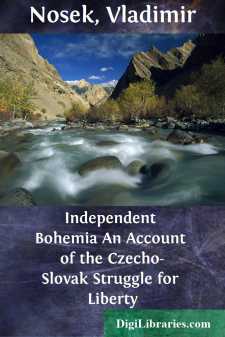Categories
- Antiques & Collectibles 13
- Architecture 36
- Art 48
- Bibles 22
- Biography & Autobiography 813
- Body, Mind & Spirit 142
- Business & Economics 28
- Children's Books 17
- Children's Fiction 14
- Computers 4
- Cooking 94
- Crafts & Hobbies 4
- Drama 346
- Education 46
- Family & Relationships 57
- Fiction 11829
- Games 19
- Gardening 17
- Health & Fitness 34
- History 1377
- House & Home 1
- Humor 147
- Juvenile Fiction 1873
- Juvenile Nonfiction 202
- Language Arts & Disciplines 88
- Law 16
- Literary Collections 686
- Literary Criticism 179
- Mathematics 13
- Medical 41
- Music 40
- Nature 179
- Non-Classifiable 1768
- Performing Arts 7
- Periodicals 1453
- Philosophy 64
- Photography 2
- Poetry 896
- Political Science 203
- Psychology 42
- Reference 154
- Religion 513
- Science 126
- Self-Help 84
- Social Science 81
- Sports & Recreation 34
- Study Aids 3
- Technology & Engineering 59
- Transportation 23
- Travel 463
- True Crime 29
Independent Bohemia An Account of the Czecho-Slovak Struggle for Liberty
by: Vladimir Nosek
Description:
Excerpt
PREFACE
In the following pages I have attempted to outline the story of our movement for independence. The manuscript of this book was completed over four months ago. Since then many important changes have occurred in the international situation. Chapters in which we dealt with the then still existing Dual Monarchy must of course be read in the past tense, since Austria exists no more. And again, many things which we anticipated and hoped for in the future have already become accomplished facts. However, I trust that the story itself has not only lost none of its value thereby, but has acquired an additional interest from a historical point of view. Our aim of national independence, only quite recently declared by our adversaries to be "an empty dream of moonstruck idealists," has become to-day not only a practical proposition, but an accomplished fact. We have our own army, which is by no means the smallest Allied army, and we also have our own Provisional Government in Paris, recognised not only by the Allies and by all Czecho-Slovaks abroad, but even by Czech leaders in Bohemia, with whom we have since the beginning of the war worked in complete harmony and understanding. The organisation of our independent State is rapidly proceeding. Austria-Hungary, exhausted economically and bankrupt politically, has fallen to pieces by the free-will of her own subject peoples, who, in anticipation of their early victory, broke their fetters and openly renounced their allegiance to the hated Habsburg and Hohenzollern rule, even before Austria had actually surrendered to the Allies.
Events have moved rapidly in Austria, especially since the momentous British declaration of August 9, 1918, recognising the Czecho-Slovaks—those resident in the Allied countries as much as those in Bohemia—as an Allied nation, and the Czecho-Slovak National Council—in Paris as well as in Prague—as the Provisional Government of Bohemia. British statesmen already then foresaw the coming collapse of Austria and acted accordingly. It is also no more a secret to-day that because of the promulgation of the British and United States declarations our Council was able to conclude special conventions with all the Allied Governments during September last, whereby all the powers exercised by a real government have been granted to it.
In the meantime Germany had been losing more and more control over her allies, being herself hard pressed on the Western front, and the consequence of this was a growing boldness on the part of the Austrian Slavs. On October 2 deputy Stanek declared in the name of the whole Czech deputation that the National Council in Paris were their true spokesmen and representatives with whom Austria would have to negotiate. Soon afterwards the Austrian Poles went to Warsaw, where they formed a new all-Polish Government, and the Southern Slavs entrusted the government of their territories to their National Council in Zagreb. Similar councils were formed also by the Ruthenes and Rumanians....


